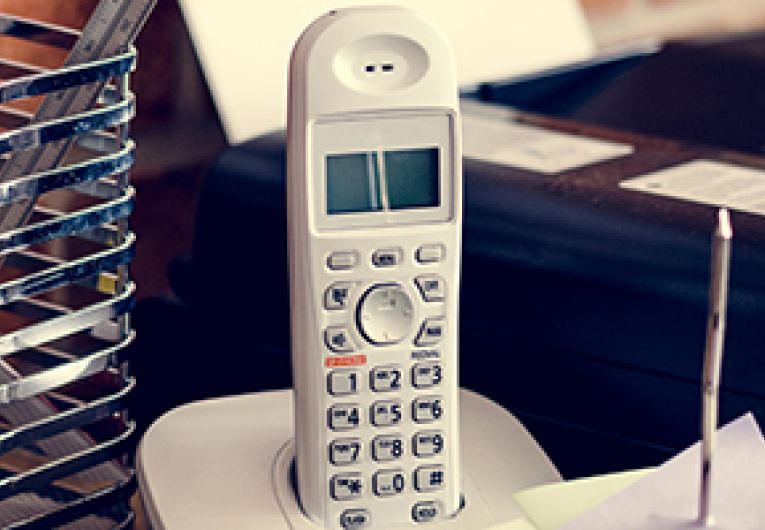
Good for Business: The Different Types of Workers Who Benefit From Hosted Voice
Your business phones need to match up with the ways you and your employees communicate with customers and vendors, as well as with each other. That’s why taking a good look at individual users in your office —their specific “styles” — is a great approach when reviewing a Hosted Voice business phone system.
“It’s a matter of defining each of the employees in your workforce and segmenting them into ‘style’ categories,” says Chris Boone, vice president of business services at Cable ONE. “For example, are they working most of their day at their desk or are they the type of employee who does most of their business on the go?”
Because communications and mobility mean different things for different types of employees, “use case” categories can help guide companies and organizations as they assess business phone systems such as the cloud-based Hosted Voice.
“You want a phone solution that will fit your company’s ‘best potential,’ the level of technology that fits your business and workers so you can compete and better serve your customers,” Boone says.
Here are three voice communication styles and how they match up with the features of Hosted Voice, a business phone system run by an offsite provider through a data center.
Use Case #1: The Mostly Mobile Employee
This employee works most often on the go, with more than 50 percent of their time away from their desk. That may mean they’re doing business at a client or vendor location, from a hotel, and/or handling work from their car between appointments.
“If I’m this Hosted Voice user, I can take any device and treat it like I’m in my office,” Boone says. “It’s not just a convenience, it’s important to your business, and how customers and vendors see you.”
This type of employee truly requires the latest business phone technology to ensure their productivity moves along seamlessly.
With Hosted Voice, this employee has the ability to manage business with vendors, customers and coworkers as if they are at their desks – all while on the go and with one phone number for all incoming and outgoing calls.
“Without mobile technology-based service,” says Boone, “employees are left using their personal phones for business or stuck carrying around two cell phones, one for business and the other for personal.”
Use Case #2: The Office-Based Worker
This employee is working mostly at their computers, mainly at their desks. They may be an accountant, someone who’s working on contracts, purchasing or bids, or an employee taking customers calls at a small business. They have high productivity requirements but not necessarily a great need for mobility.
Hosted Voice gives this type of worker to their typical needs and features such as group conferencing with vendors or co-workers.
This style type of employee may also be someone who needs to step away from the office phone, such as a small floral business who needs to run out to pick up fresh products.
“If you’re out, all the customer knows is you’re not available,” Boone says. “Even if the call is forwarded to your cell phone, you may not be serving the customer in the most professional way possible, because your personal cell does not have the office-mobile features to take care of your business.”
One of the Hosted Voice benefits for this user is called automated attendant, which answers the incoming call with a personalized greeting and provides options for routing calls to individuals and departments. And, the Hosted Voice “queues” feature lets you customize greetings and messages, while routing calls to someone who is available.
“The customer gets the kind of service your business strives to provide,” Boone says.
Use Case #3: The In-Betweener
This employee is based in the office but is moving around, maybe walking down the hall to grab a hard-copy file or a print job. They need the ability to continue to communicate while on the go inside the office as well as out. This could be an attorney or salesperson in small or medium businesses.
“Because Hosted Voice is integrated with mobile devices and desktops, you’re able to seamlessly move from your desk to mobile device, and vice versa,” Boone says. “For example, you can record a phone call or access an audio file by clicking from your desktop or mobile phone.”
Also for businesses that use “legacy” technology, Hosted Voice provides an opportunity to “bridge” old-school with new communications technology. For example, if you still need to receive faxes, you can receive them as an email attachment.
“It may not be the only selling point,” says Boone, “but Hosted Voice is a way for you to get cutting edge communications technology without leaving anything behind.”
Evaluate Your User Categories
See what kind of users you have at your business. Evaluate how work plays out every day at your company to segment your user styles to see how Hosted Voice could match your telecommunications and mobility requirements.
Closely related: Hosted PBX: Will it Work for Your Company?
The trends, insights, and solutions you need to grow your business.
By signing up, you’re subscribing to our monthly email newsletter, The
Wire. You may unsubscribe at any time.
Your information stays safe with us. Learn more about our privacy
policy.











![[#MSP_NAME#] Logo](/themes/sparklight_business/images/transition-logos/migration-banner-logo-[#MSP_CD#].png)
